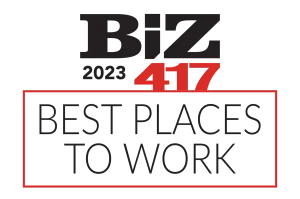
Mastering Multifamily Property Loans in Arkansas

Investing in multifamily properties in Arkansas presents an exciting opportunity for individuals looking to diversify their real estate portfolio or venture into the lucrative world of rental properties. However, securing financing for such investments can be a daunting task without the proper knowledge and guidance. In this comprehensive guide, we’ll explore everything you need to know about obtaining loans for multifamily properties in Arkansas, from understanding the available financing options to navigating the application process and beyond.
Introduction to Multifamily Property Investment in Arkansas
Arkansas presents a promising landscape for multifamily property investment, characterized by diverse opportunities and a burgeoning real estate market. As investors increasingly recognize the potential for substantial returns in this sector, understanding the unique dynamics of multifamily property investment in Arkansas becomes paramount. Multifamily properties, encompassing apartments, duplexes, townhomes, and condominiums, hold a distinct allure for investors seeking to diversify their portfolios and generate passive income streams. Unlike single-family homes, multifamily properties offer multiple rental units within a single structure, thereby magnifying revenue potential while spreading risk across a broader tenant base.
In Arkansas, the multifamily real estate market reflects the state’s economic vibrancy and demographic trends. Urban centers such as Little Rock and Fayetteville boast thriving rental markets fueled by population growth, job opportunities, and a robust economy. Moreover, the state’s affordability relative to national averages attracts both tenants and investors alike, further bolstering demand for multifamily housing. The appeal of multifamily property investment in Arkansas extends beyond financial considerations. These properties play a crucial role in addressing the state’s evolving housing needs, offering affordable and accessible housing options for individuals and families across diverse socio-economic backgrounds. By investing in multifamily properties, investors not only stand to reap financial rewards but also contribute to the socio-economic development and vibrancy of Arkansas communities.
As we delve deeper into the intricacies of multifamily property investment in Arkansas, it becomes evident that this sector holds immense potential for savvy investors looking to capitalize on the state’s growth trajectory. From exploring financing options to conducting thorough market research and due diligence, embarking on a multifamily property investment journey in Arkansas promises to be a rewarding endeavor for those willing to seize the opportunities presented by this dynamic market.
Understanding Loans for Multifamily Properties
When delving into the world of multifamily property investment in Arkansas, it’s crucial to comprehend the intricacies of securing loans tailored to these types of properties. Unlike traditional single-family home loans, multifamily property loans encompass a distinct set of considerations and requirements.
Definition of Multifamily Properties
Firstly, let’s clarify what constitutes a multifamily property. Multifamily properties are residential buildings with multiple separate housing units, such as apartment complexes, duplexes, triplexes, and quadplexes. These properties offer investors the opportunity to generate rental income from multiple tenants simultaneously, thereby diversifying their revenue streams and potentially increasing overall profitability.
Importance of Financing in Real Estate Investments
Financing plays a pivotal role in real estate investments, including multifamily properties. For most investors, purchasing multifamily properties outright with cash is not a feasible option, necessitating the use of loans to facilitate the acquisition. Understanding the various financing options available and selecting the most suitable loan type can significantly impact the success and profitability of a multifamily property investment venture.
Key Differences in Multifamily Property Loans
Compared to loans for single-family homes, multifamily property loans typically involve higher loan amounts, more stringent eligibility criteria, and different underwriting standards. Lenders assess multifamily property loans based on factors such as the property’s rental income potential, occupancy rates, and overall financial performance. Additionally, lenders may require investors to meet specific experience and financial stability thresholds to qualify for financing.
Loan Types Available for Multifamily Properties
Multifamily property loans come in various forms, each with its own set of terms, conditions, and eligibility requirements. Common types of multifamily property loans include conventional bank loans, government-backed loans such as FHA and USDA loans, and private financing options. Understanding the nuances of each loan type and assessing how they align with your investment goals is crucial for making informed financing decisions.
Factors Influencing Loan Terms and Conditions
Several factors influence the terms and conditions of multifamily property loans, including the borrower’s creditworthiness, the property’s location and condition, prevailing market conditions, and the lender’s risk assessment. Interest rates, loan duration, down payment requirements, and loan-to-value ratios are among the key terms that borrowers must consider when evaluating loan options for multifamily properties.
Risks and Considerations
While multifamily property investments offer the potential for lucrative returns, they also entail certain risks and considerations that borrowers must be aware of. These include tenant turnover rates, property maintenance and management responsibilities, market volatility, and regulatory compliance obligations. Conducting thorough due diligence and risk assessment before securing a multifamily property loan is essential for mitigating potential challenges and maximizing investment success.
Types of Loans Available for Multifamily Properties
When it comes to financing multifamily properties in Arkansas, investors have several options to choose from. Here’s a more detailed explanation of the types of loans available:
- Traditional Bank Loans: These loans are offered by banks and financial institutions and typically come with competitive interest rates and terms. Traditional bank loans require a thorough application process and may have stringent eligibility criteria, including credit score requirements and debt-to-income ratios.
- Government-Backed Loans: Government-backed loans, such as FHA (Federal Housing Administration) and USDA (United States Department of Agriculture) loans, are designed to assist individuals and families in purchasing homes, including multifamily properties. These loans often feature lower down payment requirements and more lenient credit score thresholds, making them accessible to a broader range of borrowers.
- FHA Loans: FHA loans are particularly popular among multifamily property investors due to their favorable terms and flexible eligibility criteria. These loans are insured by the Federal Housing Administration and offer benefits such as low down payments and competitive interest rates, making them an attractive option for first-time investors and those with less-than-perfect credit.
- USDA Loans: USDA loans are specifically tailored to finance properties in rural areas and offer favorable terms to eligible borrowers. These loans are backed by the United States Department of Agriculture and provide low-interest financing options for multifamily properties in qualifying rural communities.
- Private Financing Options: In addition to traditional lenders and government-backed programs, investors can explore private financing options such as hard money loans and private equity partnerships. Private financing may offer more flexibility in terms of loan terms and eligibility criteria but often come with higher interest rates and stricter repayment terms.
- Local Programs and Initiatives: Some local governments and organizations may offer specialized loan programs and initiatives to promote multifamily property development and investment in their communities. These programs may include incentives such as tax credits, grants, or low-interest loans to encourage investment in affordable housing and community development projects.
By understanding the various types of loans available for multifamily properties in Arkansas, investors can choose the financing option that best aligns with their investment goals, financial situation, and risk tolerance. Each loan type has its own set of benefits and considerations, so it’s essential to conduct thorough research and consult with financial professionals to determine the most suitable financing strategy for your multifamily property investment venture.
Private Financing Options for Multifamily Properties
Private financing options for multifamily properties offer alternative sources of capital outside of traditional bank loans or government-backed programs. These options are typically provided by private lenders, including individuals, private equity firms, or specialized lending institutions. Here’s a more detailed explanation of private financing options for multifamily properties:
- Overview of Private Lenders: Private lenders are entities or individuals who provide loans to borrowers based on their own criteria, rather than following strict guidelines set by traditional banks or government agencies. These lenders may offer more flexibility in terms of loan terms, eligibility requirements, and approval processes.
- Flexibility in Loan Terms: Private financing options often come with more flexible terms compared to traditional loans. This flexibility can include adjustable interest rates, customized repayment schedules, and lenient eligibility criteria. Private lenders have the freedom to tailor loan agreements to meet the specific needs of borrowers and the unique characteristics of multifamily property investments.
- Expedited Funding: Private financing options typically offer faster approval and funding processes compared to traditional bank loans. Private lenders may be able to expedite the loan application and approval process, allowing borrowers to secure funding quickly and take advantage of time-sensitive investment opportunities.
- Risk and Considerations: While private financing options can provide valuable flexibility and expedited funding, they often come with higher interest rates and fees compared to traditional loans. Borrowers should carefully evaluate the cost of private financing and weigh it against the benefits of faster approval and more flexible terms.
- Collateral Requirements: Private lenders may require collateral to secure the loan, such as the multifamily property itself or other assets owned by the borrower. Collateral requirements vary depending on the lender’s risk tolerance and the borrower’s financial situation.
- Communication and Relationship Building: Building a strong relationship with private lenders is crucial for successful financing arrangements. Effective communication and transparency throughout the loan process can help borrowers establish trust and confidence with lenders, potentially leading to more favorable loan terms and future financing opportunities.
- Exit Strategies: Private financing options often come with shorter loan terms and may require borrowers to have clear exit strategies in place. Borrowers should consider their long-term investment goals and develop a plan to refinance or repay the loan when the term expires.
Overall, private financing options for multifamily properties offer investors an alternative source of capital with greater flexibility and faster funding compared to traditional bank loans. By understanding the nuances of private lending and carefully evaluating the terms and risks associated with these options, investors can leverage private financing to support their multifamily property investments effectively.
Tips for Successful Loan Application and Approval
Securing financing for a multifamily property investment in Arkansas requires careful preparation and strategic planning. To increase your chances of a successful loan application and approval, consider the following tips:
- Build a Strong Credit Profile: Lenders rely heavily on credit scores when assessing loan applications. Before applying for a multifamily property loan, take steps to improve your credit score by paying off outstanding debts, reducing credit card balances, and resolving any errors on your credit report.
- Prepare Necessary Documentation: Gathering all required documentation ahead of time can streamline the loan application process and demonstrate your financial stability to lenders. Be prepared to provide documents such as tax returns, bank statements, proof of income, and property information.
- Work with Experienced Professionals: Partnering with experienced real estate agents, mortgage brokers, and legal advisors can provide valuable guidance and support throughout the loan application and approval process. These professionals can offer insights into market trends, negotiate favorable loan terms, and ensure compliance with legal and regulatory requirements.
- Showcase Financial Stability: Lenders are more likely to approve loans for borrowers with a stable financial history and reliable income sources. Highlighting steady employment, consistent rental income, and strong cash reserves can strengthen your loan application and reassure lenders of your ability to repay the loan.
- Demonstrate Property Value: Providing thorough documentation and appraisals that accurately reflect the value of the multifamily property can bolster your loan application. Highlighting factors such as location, rental history, amenities, and potential for future appreciation can help lenders assess the property’s investment potential and mitigate perceived risks.
- Minimize Debt-to-Income Ratio: Lenders typically have strict debt-to-income ratio requirements for multifamily property loans. Minimizing your existing debts and increasing your income can improve your debt-to-income ratio and enhance your eligibility for financing.
- Be Transparent and Communicative: Open communication with lenders throughout the loan application process is essential for building trust and addressing any concerns or questions that may arise. Be prepared to provide additional information or clarification as requested and respond promptly to inquiries from lenders.
- Explore Multiple Lending Options: Don’t limit yourself to a single lender when seeking financing for a multifamily property investment. Shop around and compare loan offers from multiple lenders to find the most competitive terms and rates that align with your financial goals and investment strategy.
- Consider Down Payment Options: While larger down payments can lower monthly mortgage payments and improve loan terms, explore various down payment options to find the balance between upfront costs and long-term affordability. Some loan programs, such as FHA loans, offer lower down payment requirements, making them more accessible to first-time investors.
- Stay Informed and Flexible: Real estate financing markets are constantly evolving, with new loan products and regulations emerging regularly. Stay informed about changes in lending practices, interest rates, and government programs that may impact your multifamily property loan application. Remain flexible and adaptable to adjust your financing strategy accordingly.
By implementing these tips and strategies, you can position yourself for success in securing financing for your multifamily property investment in Arkansas. With careful planning, diligent preparation, and proactive communication, you can navigate the loan application and approval process with confidence and achieve your real estate investment goals.
Factors Influencing Loan Approval for Multifamily Properties
Several factors influence the approval process for loans for multifamily properties in Arkansas. Market conditions play a significant role, as lenders assess the overall economic climate and real estate market trends to determine the level of risk associated with financing multifamily properties. Property appraisal is another crucial factor, as lenders rely on accurate valuations to gauge the property’s worth and its potential as collateral for the loan. Additionally, the loan-to-value ratio, which compares the loan amount to the property’s appraised value, influences lenders’ willingness to extend financing, with lower ratios typically resulting in more favorable terms. Overall, understanding and addressing these factors can significantly impact the likelihood of loan approval for multifamily property investments.
Summary of Key Points
In summary, mastering multifamily property loans in Arkansas requires a comprehensive understanding of available financing options, eligibility criteria, and investment considerations. Investors must carefully evaluate traditional bank loans, government-backed programs like FHA and USDA loans, and private financing alternatives to determine the most suitable option for their investment goals. Factors such as creditworthiness, property eligibility, and market conditions play a crucial role in securing favorable loan terms. By conducting thorough research, assembling necessary documentation, and working with experienced professionals, investors can navigate the loan application process with confidence and unlock the full potential of multifamily property investments in Arkansas.
Frequently Asked Questions (FAQs)
Q1. What are the typical interest rates for multifamily property loans?
Ans: Interest rates for multifamily property loans vary depending on factors such as the lender, loan type, and market conditions. Generally, interest rates range from 3% to 7%, with government-backed loans like FHA and USDA offering competitive rates for eligible borrowers.
Q2. How long does the loan approval process usually take?
Ans: The loan approval process for multifamily properties can vary depending on factors such as the lender’s workload, documentation requirements, and property appraisal timelines. On average, the process takes anywhere from 30 to 60 days, though expedited options may be available for qualified borrowers.
Q3. What happens if I default on my loan payments?
Ans: Defaulting on a multifamily property loan can have serious consequences, including foreclosure proceedings and damage to your credit score. If you find yourself unable to make payments, it’s crucial to communicate with your lender promptly to explore alternative solutions, such as loan modification or refinancing options.
Q4. Are there any tax incentives for investing in multifamily properties in Arkansas?
Ans: Yes, investing in multifamily properties in Arkansas may qualify you for various tax incentives and deductions, including depreciation, mortgage interest deductions, and property tax deductions. To maximize your tax benefits, consult with a qualified tax professional familiar with real estate taxation laws and regulations.


 Previous Post
Previous Post Next Post
Next Post






